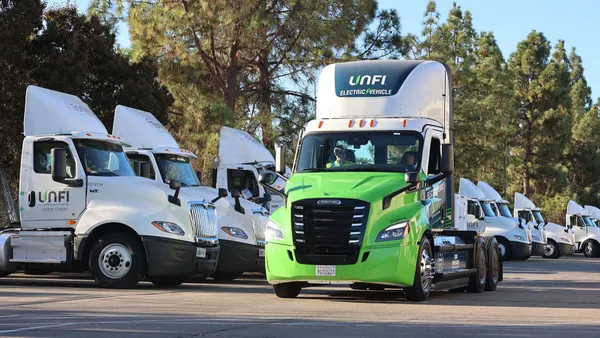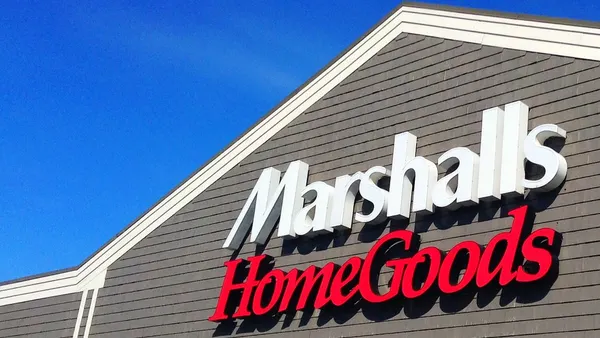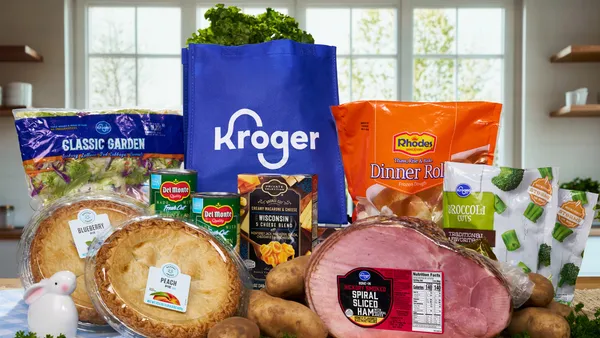Dive Brief:
- Off-price retailers like T.J. Maxx, Marshall's, Ross and Burlington are poised to emerge as winners of the U.S.-China trade war because of their somewhat bulletproof sourcing strategy, multiple CEOs demonstrated on recent earnings calls.
- These retailers buy unsold or excess inventory from brands and other retailers, meaning most of their supply chains start and end in the U.S. Only 6% of Burlington's total products are directly imported from outside the U.S, so a "small percentage" is affected by tariffs, according to CEO Tom Kingsbury.
- "We believe over time, tariffs may cause disruption in the supply chain, which is typically positive for off-price retailers," Kingsbury said on a recent earnings call. "In addition, if prices do go up across retail, this could possibly make value an even more important driver of consumers into the off-price channel," he continued.
Dive Insight:
Any business that can capitalize on uncertainty is sure to fair well in the midst of a trade war between the U.S. and China. Burlington, Ross and TJX, which owns Marshall's, T.J. Maxx and Home Goods, are able to do just that.
"When there's disruption in the marketplace, it could be when there [were] issues in the ports a couple of years ago or if it's cold weather in the spring season ... wherever there is any kind of disruption, there is more product available to us," Kingsbury said last week.
Dana Telsey, CEO of Telsey Advisory Group, told CNBC the newly-threatened Mexico tariffs will be incrementally worse for most retailers, but off-price players stand to gain. Uncertainty regarding tranche four and Mexico tariffs is likely to increase the quality and availability of product for off-price buyers, according to Telsey. The fourth-quarter pull-forward of inventory ahead of what was then believed to be an imminent tariff hike, along with the pull-forward some experts are predicting now, will lead to high overall inventories and the nearly inevitable excess that follows.
"You’re still going to see those off-pricers outperform and the reason why is because the extra inventory ... their prices always come down a bit," Telsey said.
Though Ross CFO Michael Hartshorn, like most of the retailer's contemporaries, admitted the company adjusted guidance slightly when list three tariffs on $200 billion in Chinese imports went from 10% to 25% last month, there is an upside for Ross.
"The silver lining is we have a flexible business model and can react to the price increases. And disruptions like this have historically meant supply opportunities for off-price," Hartshorn said.
Like most businesses, the off-price retailers had not yet incorporated list four tariffs into their forecasts upon reporting first quarter results in May. Kingsbury did not know how exposed the 6% of product sourced outside of the U.S. is to list four tariffs, but he assured analysts even if it is affected, the impact would be small, and the off-price model gives the retailer complete flexibility to offset it. "Our business is rooted in opportunistic buys," he said.














